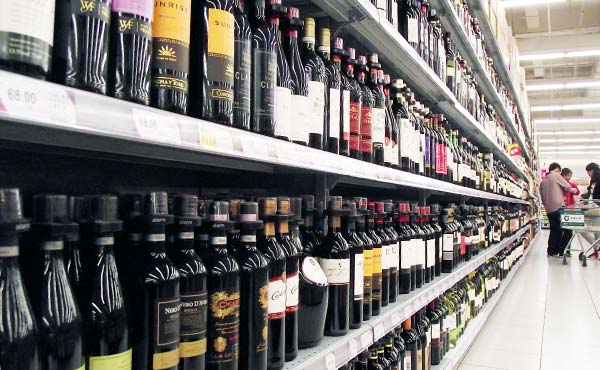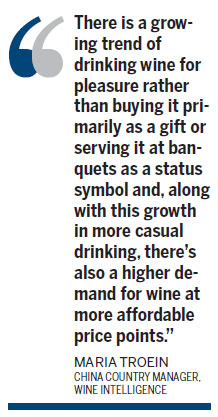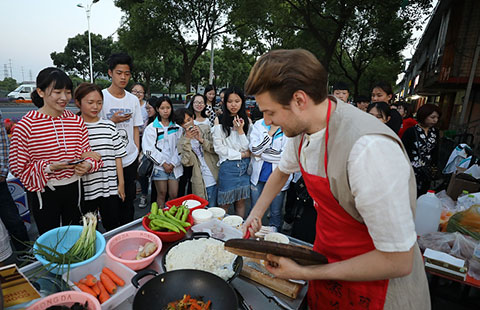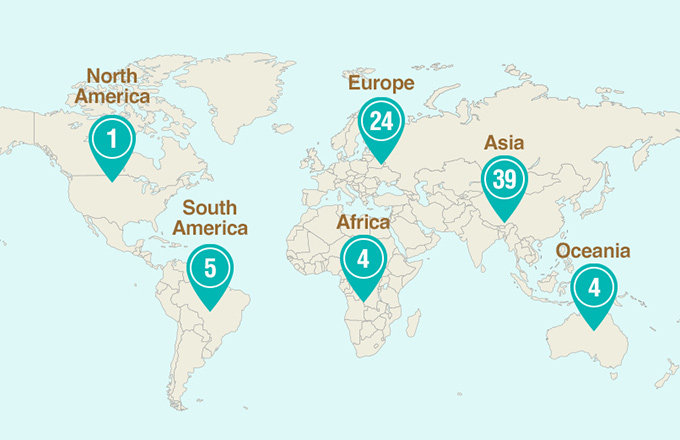Call for cheaper wine as economy slows
 |

Both Bordeaux and Chinese producers seek less expensive brands to widen market
The wine industry in China is paying more attention to less expensive brands as an increasing number of Chinese people seek more affordable imported bottles to enjoy socially rather than for business purposes.
The figures from Wine Intelligence, a London-based consulting firm specializing in the wine business, show that in the first quarter of 2013, 69 percent of 1,024 people surveyed aged between 18 and 50 in China said they usually spent less than 200 yuan ($33) on imported wine for a casual occasion. Wine Intelligence did not provide figures for previous years because there was a change to its survey methodology. However, Wine Intelligence said there is growing demand for less expensive wine in China.
"There is a growing trend of drinking wine for pleasure rather than buying it primarily as a gift or serving it at banquets as a status symbol and, along with this growth in more casual drinking, there's also a higher demand for wine at more affordable price points," said Maria Troein, China country manager of Wine Intelligence.
There is no industry definition for entry-level wine or affordable wine. However, industry insiders said wine priced below 200 yuan could be defined as entry-level wine.
"The Chinese, as in other mature markets, are showing more interest in wine and getting to know more about it. This has created new market segments of young drinkers who like to drink wine and that fits their lifestyles - whether it is in restaurants, bars or even at home," said Joao Gago, managing director of Boutique Wine Asia. BwA is an imported-wine trading company in China with annual trading volume of 20 containers of wine from more than 10 countries.
Gago said 50 percent of BwA sales are made up of wine priced around 90 yuan, an increase from 25 percent in 2012.
"Before it was not common to see a Chinese person order a bottle of wine in a restaurant or buy wine to share with friends at home. Now it is becoming better appreciated. It has become part of daily life, especially in bigger and more sophisticated cities such as Shanghai," said Gago.
"Wine is said to be good for the health and a bottle of wine might provoke more topics to talk about in one's leisure time," said Wang Yue, a white-collar worker in Shanghai.
The gradually maturing wine market in China has made wine businesses in Bordeaux, France, keen to introduce more affordable varieties to the Chinese market to capture demand from ordinary people. In previous years, Bordeaux wine was considered to be a symbol of social status and only suitable for high-end business banquets. Bordeaux wine traders are trying to change that image.
Every year, the Bordeaux Wine Council (Conseil Interprofessionnel du Vin de Bordeaux, or CIVB in French), a French group that represents more than 10,000 Bordeaux wine producers and vine growers, recommends to Chinese wine lovers a selection of 100 Bordeaux wines that are best adapted to the Chinese market and are priced at the entry and medium levels (100 to 350 yuan a bottle).
"We want the customers to know that not all Bordeaux wines are expensive. Some of them are but there are also some that are affordable and of good quality," said Thomas Jullien, Asia Manager of the CIVB.
China has become the first export destination for Bordeaux wine. In 2012, China imported a total of 64 million liters of Bordeaux wines, twice the volume sent to Germany, its closest rival, according to CIVB data.
Changing market conditions are also pushing Chinese wine makers to develop less expensive brands to better fit market demand.
"Our new products will be priced between 50 yuan to 100 yuan a bottle, affordable for ordinary folk. This is in line with the relatively slower economic growth this year," said Luan Xiuju, managing director of China Foods Ltd, the Hong Kong-listed consumer food arm of the country's largest State-owned food conglomerate China National Cereals, Oils and Foodstuffs Corp
Industry experts believe more affordable wine will help cultivate a wine culture in China and boost market demand in the long run.
"China's market is growing very fast but people are still less familiar with the wine culture than they are in Western countries. The most important thing right now is to bring wine into households as well as people's daily lives," said Ma Wenfeng, a senior analyst at Beijing Orient Agribusiness Consultant.



















